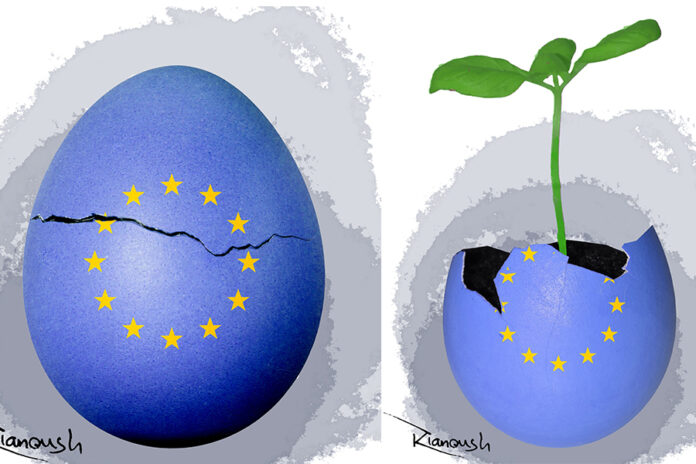(THIS ARTICLE IS MACHINE TRANSLATED by Google from Norwegian)
Project manager in Civita, Mathilde Fasting, MODERN TIMES answers the following about European greensis: "As the situation in the world is at the moment, it is important to defend the basic values [such as respect for the rule of law and human rights, ed. Note] The EU is built on This applies both internally between EU countries and vis-à-vis other states. It will be very unfortunate if some EU countries do not recognize the basic liberal values and thus create discord within the Union. The principle of freedom of expression and respect for the rule of law must be invariable, and it will also have to apply to the EU's own institutions and laws. If a country has joined the EU, it has also joined this. Another important realization is that the will to participate and to believe in the EU's fundamental values must come from the Europeans themselves. Creating a European identity rather than a national one is not the goal, but both identities can exist side by side, and then the European one should precisely contain an adherence to the fundamental values on which the EU and European cooperation are built. It requires common arenas such as education, employment opportunities and free movement in Europe."

NTNU professor Lisa Rye points to the complexity of having to force EU countries to change their behaviour: «I would argue that developments in the past year have made clear the EU's willingness to put action behind the claim that the Union is a community of values. EU cooperation was not designed to deal with the situation that has arisen as member states have challenged the Union's fundamental values [such as respect for the rule of law and human rights]. Since the EU is not as supranational as some might think, developing effective mechanisms that can be implemented against member states that, for example, dismantle the rule of law, is not done in a jiffy either. Now, however, the EU has put in place a new set of regulations that makes it possible to withhold payments from the EU budget to countries that violate the rule of law. It remains to be seen how effective the new regulations will be, and which way the development in countries such as Poland and Hungary will go. Country cannot be changed from outside.»
"A safe Europe breaks down dividing lines that give rise to conflict and instability."
Trine Lise Sundnes
The Labor Party's parliamentary representative Trine Lise Sundnes wants a more marked EU in the face of undemocratic currents: "Both we and the EU must protect fundamental values such as democracy, the rule of law and human rights. A secure Europe is a Europe that is able to defend itself against external and internal threats, and that breaks down dividing lines that give rise to conflict and instability. Developments in recent years among some of the EU's member states have challenged EU law and the European spirit.
I am thinking in particular of Poland and Hungary, both of which, by acting contrary to European human rights and rule of law principles, have had transfers from Brussels stopped from specific EU programmes. These two have appealed the EU's decision on a new rule of law mechanism that provides Brussels ability to withhold transfers. The verdict is now expected in February [The Commission was given the right to withhold financial support for countries that do not respect the EU treaty, editor's note]. Weak sanction options for countries that violate European law weaken the Union's implementation power. From a Norwegian perspective, it will be important to make demands , nction#s opportunities when we will soon enter into negotiations with the EU about new EEA funds."


